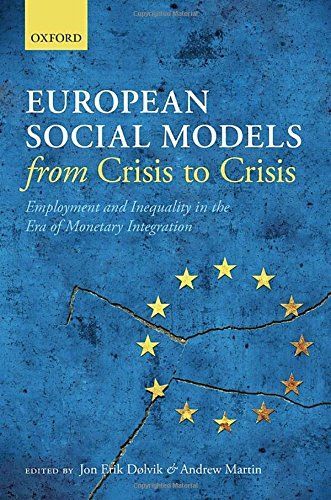
European Social Models from Crisis to Crisis Employment and Inequality in the Era of Monetary Integration
This book analyzes the interaction of European social models -- the institutions structuring labor markets' supply side -- and their turbulent macroeconomic environment from the deep Europe-wide recession, ending Germany's post-unification boom, through monetary union's establishment, to the Great Recession following the recent financial crisis. The analysis reaches two conclusions challenging the dominant view that the social models caused unemployment by impairing labor markets' efficiency in the name of equity. First, the social models' employment and distributive effects are far outweighed by their macroeconomic environment, especially in the Eurozone, where its truncated structure of economic governance transformed the Great Recession into a sovereign debt crisis. Second, instead of a trade-off between efficiency and equity, the employment effects of counteracting markets tendency to generate inequality depends on the macroeconomic conditions under which it occurs and how it is done.